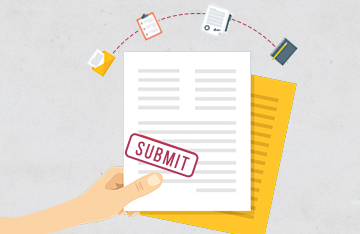Writing A Computer Science Research Paper: A Quick Guide
Writing A Computer Science Research Paper For people who are unfamiliar with the process, writing a research paper in computer science might be a difficult undertaking.
However, you may write a paper that satisfies academic requirements and adds significant knowledge to the area if you follow a clear, step-by-step guidance and plan ahead. From choosing a topic to final editing, this tutorial will take you step-by-step through the whole research paper writing process.
Step 1: Understand the Purpose and Scope of the Research Paper
It’s important to comprehend the goal and parameters of a computer science research paper before beginning to write. Presenting fresh perspectives, investigating uncharted territory, resolving current issues, or suggesting novel techniques or algorithms are the goals of a research article. The goal of your work should be to add to the corpus of information already available in the field.
Key Considerations:
- Research Focus: Your research should be original, addressing an unresolved problem, new theory, or novel application of existing methods.
- Target Audience: Computer science research papers are typically written for fellow researchers, professionals, or academicians in the field. Keep in mind the level of understanding your audience has of technical terms, concepts, and theories.

Step 2: Choose a Relevant and Specific Topic
The topic you choose for your research paper is one of the most important decisions in the writing process. A well-defined, focused topic will help you stay on track and avoid overwhelming yourself with too much information.
Guidelines for Topic Selection:
- Relevance: Choose a topic that is relevant to current trends and developments in computer science, such as artificial intelligence (AI), machine learning, cybersecurity, data science, or blockchain technology.
- Specificity: Narrow down your topic to a manageable size. For instance, instead of writing about “artificial intelligence,” you could focus on “the use of machine learning algorithms in cybersecurity.”
- Novelty: Your research should aim to add new perspectives to existing knowledge or solve an identified problem.
Brainstorming Tips:
- Review recent publications in computer science journals, conferences, or online repositories to identify areas of active research.
- Consider the challenges and problems that professionals in the field are currently facing.
- Ask yourself how new technologies, algorithms, or tools could be applied to solve real-world issues.
Step 3: Conduct Thorough Literature Review
A strong literature review is the backbone of any research paper. It allows you to understand the current state of research in your chosen field and helps you identify gaps that your paper can address. This step ensures that your work builds on previous research and isn’t redundant.
How to Conduct a Literature Review:
- Database Search: Use academic databases such as Google Scholar, IEEE Xplore, and ACM Digital Library to search for relevant papers, articles, and books.
- Key Authors and Studies: Identify the seminal works in your area of study and the leading authors in the field. Pay attention to highly-cited papers as they often provide valuable foundational knowledge.
- Identify Gaps: As you review existing literature, note any gaps or unanswered questions that your paper can address. This will help you narrow down your research focus.
Key Elements of a Literature Review:
- Summarize key findings from existing research.
- Identify methodologies used in past studies.
- Discuss any discrepancies or debates within the field.
- Show how your research will contribute to filling gaps in knowledge.
Step 4: Develop a Hypothesis or Research Question
After reviewing the literature and identifying gaps, the next step is to develop your research hypothesis or question. Your hypothesis should provide a clear statement of what you aim to prove, disprove, or explore in your paper.
Guidelines for Writing a Hypothesis or Research Question:
- Clarity: Your research question or hypothesis should be clear and concise.
- Testability: Ensure that your hypothesis can be tested or your question can be answered through experimentation or analysis.
- Relevance: Your hypothesis should address an important issue or problem in the field of computer science.
Example Hypothesis:
- “The integration of deep learning techniques into malware detection algorithms can improve accuracy and reduce false positives in comparison to traditional signature-based methods.”
Step 5: Design and Implement Methodology
The methodology section of your research paper outlines the approach you will use to address your research question or test your hypothesis. In computer science, this may involve designing experiments, running simulations, or creating algorithms to test a theory.
Key Considerations for Methodology:
- Type of Study: Determine if your research will be experimental, theoretical, or a combination of both.
- Tools and Technologies: Identify the programming languages, software tools, datasets, and hardware you will need.
- Experiment Design: Plan how you will structure your experiments, including how you will collect and analyze data.
- Reproducibility: Ensure that others can replicate your experiments by providing detailed descriptions of your methodology.
Example Methodology: If you are testing the performance of an algorithm, you might outline the following:
- Define the dataset you will use.
- Specify the algorithm you are testing (e.g., a deep learning model).
- Outline how you will measure performance (e.g., accuracy, precision, recall).
Step 6: Data Collection and Analysis
Once your methodology is established, it’s time to collect and analyze the data. Depending on your project, you may collect data through experiments, simulations, surveys, or existing datasets.
Steps for Data Collection and Analysis:
- Data Collection: Gather data using the tools and methods you outlined in your methodology.
- Data Cleaning: Ensure that your data is clean, formatted correctly, and free from errors.
- Statistical Analysis: Use appropriate statistical tools and software to analyze your data. In computer science, this may involve performing performance comparisons, running simulations, or analyzing trends.
- Interpretation: Draw meaningful conclusions from your data analysis. This may involve identifying patterns, correlations, or anomalies.
Tips for Data Analysis:
- Ensure that your analysis is objective and unbiased.
- Use visualizations (e.g., graphs, charts, tables) to present your findings clearly.
- Compare your results to existing studies and theories to assess their significance.
Step 7: Organize Your Paper
A well-organized research paper is easier to read and understand. Most computer science papers follow a standard structure, which includes the following sections:
- Abstract: A brief summary of your paper, including the research question, methodology, and key findings.
- Introduction: Introduces the topic, outlines the problem, and explains the significance of your research.
- Related Work (Literature Review): Summarizes existing research and shows how your work fits into the field.
- Methodology: Describes the methods used to gather data and test your hypothesis.
- Results and Discussion: Presents the findings of your research and discusses their implications.
- Conclusion: Summarizes the key points of your paper and suggests future research directions.
- References: Lists all sources cited in your paper.
Step 8: Write and Revise Your Draft
Once you have gathered all your information and organized your paper, it’s time to start writing. Begin by drafting each section, keeping in mind that the first draft doesn’t have to be perfect. Focus on getting your ideas down, and then revise for clarity, flow, and conciseness.
Tips for Writing:
- Clarity: Ensure that your writing is clear and accessible to the reader. Avoid unnecessary jargon.
- Flow: Make sure that your ideas transition smoothly from one section to the next.
- Conciseness: Be concise and avoid redundancy. Every sentence should contribute to the overall argument.
Step 9: Review and Edit Your Paper
After completing your first draft, take time to review and revise it. This process is crucial to ensure that your paper is error-free and meets academic standards.
Key Aspects to Review:
- Grammar and Spelling: Use grammar-checking tools and thoroughly proofread your paper for spelling and grammatical errors.
- Citations: Ensure that all sources are properly cited according to the style guide required (e.g., APA, IEEE, or ACM).
- Coherence: Check if your ideas are logically organized and whether each section supports your thesis.
- Formatting: Ensure that your paper follows the appropriate formatting guidelines set by your institution or the journal you plan to submit to.
Step 10: Submit Your Research Paper
Once your paper is polished and ready, it’s time to submit it to a journal, conference, or academic repository. Be sure to carefully follow the submission guidelines and ensure that your paper adheres to the required format.

Conclusion
Computer science research paper writing calls for meticulous preparation, in-depth study, and close attention to detail. You may successfully negotiate the intricacies of the writing process and generate a superior research paper by adhering to the detailed instructions provided in this article. Don’t forget to apply appropriate procedures, stay focused on your research issue, and succinctly and effectively communicate your findings. The approach will enable you to make a contribution to the constantly changing field of computer science, regardless of whether you are submitting your work for academic credit or to a peer-reviewed journal.
(FAQ)
1. How long does it take to write a research paper in computer science?
The time it takes to write a research paper varies depending on the complexity of the topic and your familiarity with the subject. On average, it may take anywhere from a few weeks to a few months to complete the paper, including research, experimentation, writing, and revisions.
2. What is the most important part of a computer science research paper?
The most important part of a research paper is the methodology, as it explains how you conducted your research and allows others to replicate your study. The results and discussions sections are also crucial, as they demonstrate the significance of your findings.
3. How do I know if my research question is valid?
A valid research question should be clear, focused, and answerable within the scope of your research. It should fill a gap in existing literature or address a current problem in the field. Consulting with your professor or advisor can help validate your research question.
4. Should I include a lot of technical jargon in my paper?
While technical jargon is necessary for clarity in a computer science paper, it’s important to strike a balance. Ensure that your paper is accessible to a broad academic audience without overwhelming them with overly complex terminology. Always define terms that may be unfamiliar to the reader.
5. Can I submit my research paper to multiple journals at once?
Typically, academic journals expect exclusive submissions. You should check the submission guidelines of the journal you’re submitting to, as many require that the paper not be under consideration elsewhere.
6. How can I improve the quality of my research paper?
To improve the quality of your research paper, focus on producing original work, provide clear and comprehensive explanations, and back up your claims with robust data and references to credible sources. Peer feedback and thorough revisions are also essential.
















